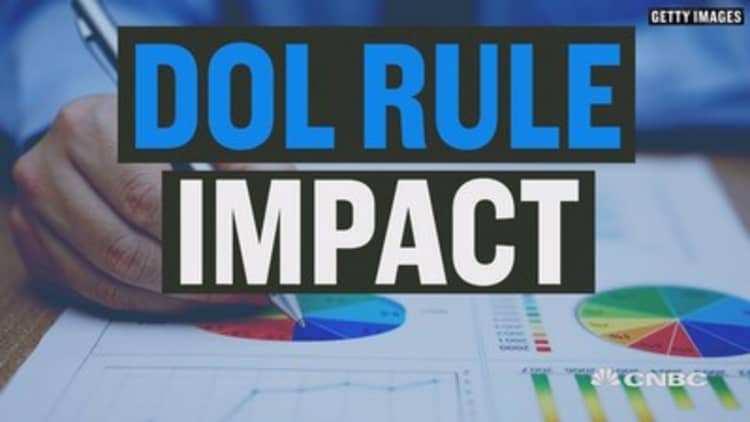
Opponents of a federal rule intended to protect investors might get some of what they want.
In a court brief filed in a Minnesota lawsuit on Wednesday, the Labor Department said it has submitted to the Office of Management and Budget a proposal to delay implementing the remaining parts of its so-called fiduciary rule for 18 months.
If approved by the OMB, the move would push the out the effective date to July 1, 2019, from Jan. 1, 2018. The proposed 18-month pause mirrors the request from some opponents in the financial services industry, which already had succeeding in getting one delay.
A Labor Department spokesman declined to comment for this story.
The first part of the rule took effect in June, which requires financial advisors to work in the best interest of clients when it comes to providing advice related to their retirement accounts. At the direction of the Trump administration, the DOL has been working on an economic impact review of the rule since February.
The provisions affected by a delay include rules for specific written disclosures from financial services firms and advisors, including the requirement that advisors earning commissions on investments in retirement accounts sign a legally binding agreement putting their clients' interests ahead of their own.
Meanwhile, the rule also remains in the crosshairs of congressional Republicans. Last month, a House committee approved a measure that would repeal the fiduciary rule and replace it with one allowing disclosures of potential conflicts of interest. Legislators are also working on a draft bill that would not only would adopt a disclosure-based standard but would apply it to all retail accounts, not just retirement money.


